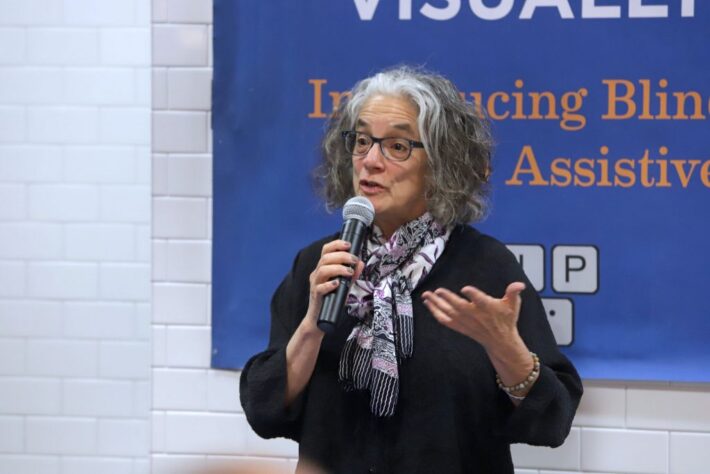On May 19, 2023, two United States federal agencies issued what is known as a “Dear Colleague” letter about the importance of digital accessibility in higher education. A Dear Colleague letter is a tool that government agencies use to convey policy, resources and commitment on various issues. The higher education digital accessibility letter was jointly published by the U.S. Department of Education (DOE) and the U.S. Department of Justice (DOJ).
- What does the May 2023 higher education digital accessibility Dear Colleague Letter say?
- What about regulations on digital accessibility in higher education?
What does the May 2023 higher education digital accessibility Dear Colleague Letter say?
You can read the four-page Dear Colleague Letter about digital accessibility in higher education here.
The purpose of the letter is stated in the first paragraph. It was written to:
[m]ake you aware of the Justice Department and Department of Education’s ongoing efforts to address barriers that prevent people with disabilities from participating in online services, programs and activities that colleges, universities and other postsecondary institutions make available to students and the public.
May 19, 2023, Joint Dear Colleague Letter from the DOJ and DOE
Significantly, the letter identifies various digital technology and content that need accessibility for disabled students to participate in post-secondary education. These are given as examples, and not as the only digital tools and content that need accessibility:
- Websites.
- Third-party online platforms.
- Learning platforms like edX, Coursera and Kadenze.
- Podcasts and videos.
- Social media and third-party platforms like YouTube, Spotify and Apple Podcasts.
- Content including lectures, conferences, sporting events, admissions information and graduation ceremonies.
As the letter recognizes, these are examples of services, programs, or activities of the college, university or other postsecondary institution, “but much of it is often inaccessible to individuals with disabilities.” The letter also recognizes that this content and technology must be available to both students and the public.
The letter also explains the legal framework that prevents colleges, universities and other postsecondary institutions from discriminating against students, faculty and staff with disabilities. This framework includes the Americans with Disabilities Act and Section 504 of the Rehabilitation Act.
These laws, the letter explains, require higher education institutions:
to provide equal opportunities to people with disabilities in all their operations, including equal opportunities to participate in and benefit from online services, programs and activities.
May 19, 2023, Joint Dear Colleague Letter from the DOJ and DOE
The letter also explains how the DOJ and the DOE enforce existing laws in the digital space. As an example, it notes that in May 2022, the DOE’s Office of Civil Rights (OCR) “proactively launched 100 compliance reviews regarding digital accessibility.” These reviews looked at:
[D]igital accessibility in public- and student-facing websites and educational platforms maintained by public and private colleges, universities, and other postsecondary institutions, as well as State departments of education, school districts, charter schools and public libraries.
May 19, 2023, Joint Dear Colleague Letter from the DOJ and DOE
What about regulations on digital accessibility in higher education?
The final section of the letter is titled “Guidance and Regulations.” As for guidance, the letter lists both DOJ and DOE resources for making digital technology and content accessible.
This guidance includes a link to a 20-part video series described in the letter as “covering topics such as how people with disabilities use technology, applicable Federal laws, and how to identify and remediate different types of technological barriers that can interfere with the ability of parents and students with disabilities to participate in modern American education.”
Guidance is good as far as it goes, but what about specific and technical digital accessibility regulations for higher education? The DOJ and DOE enforcement activities confirm that existing regulations preventing discrimination and requiring effective communication are broad enough to require digital accessibility in United States higher education.
But specific regulations embracing the Web Content Accessibility Guidelines (WCAG) and providing specifics about digital accessibility are needed and long overdue. The Dear Colleague letter reminds readers that the DOJ has promised to (re)start the rulemaking process for state and local government entities (including educational institutions) that will “provide technical standards to assist public entities in complying with their existing obligations to make their websites accessible to individuals with disabilities.”
I wrote about the status and limitations of those promised ADA regulations in an article titled Deja Vu All Over Again? DOJ Announces Intent to Adopt Web Accessibility Regulations for State and Local Governments. The article is updated as new information on the regulations becomes available.
But what about private colleges, universities and other institutions of higher education? The DOJ has only promised public sector (ADA Title II) digital accessibility technical regulations. Title III (private sector) regulations are also needed for both higher ed and other sectors.
The Department of Education has also promised regulations in connection with Section 504, a law that applies to any higher education institution receiving federal funding. The Dear Colleague Letter mentions that it intends to publish an NPRM (Notice of Proposed Rule Making, the first step for federal regulations) to amend its Section 504 regulation to strengthen and protect rights for students with disabilities. The agency first announced its intention in a May 6, 2022, press release.
Today, one year and a few weeks later, we still have not seen any action on this promise.
This article originally appeared in the Law Office of Lainey Feingold blog.


